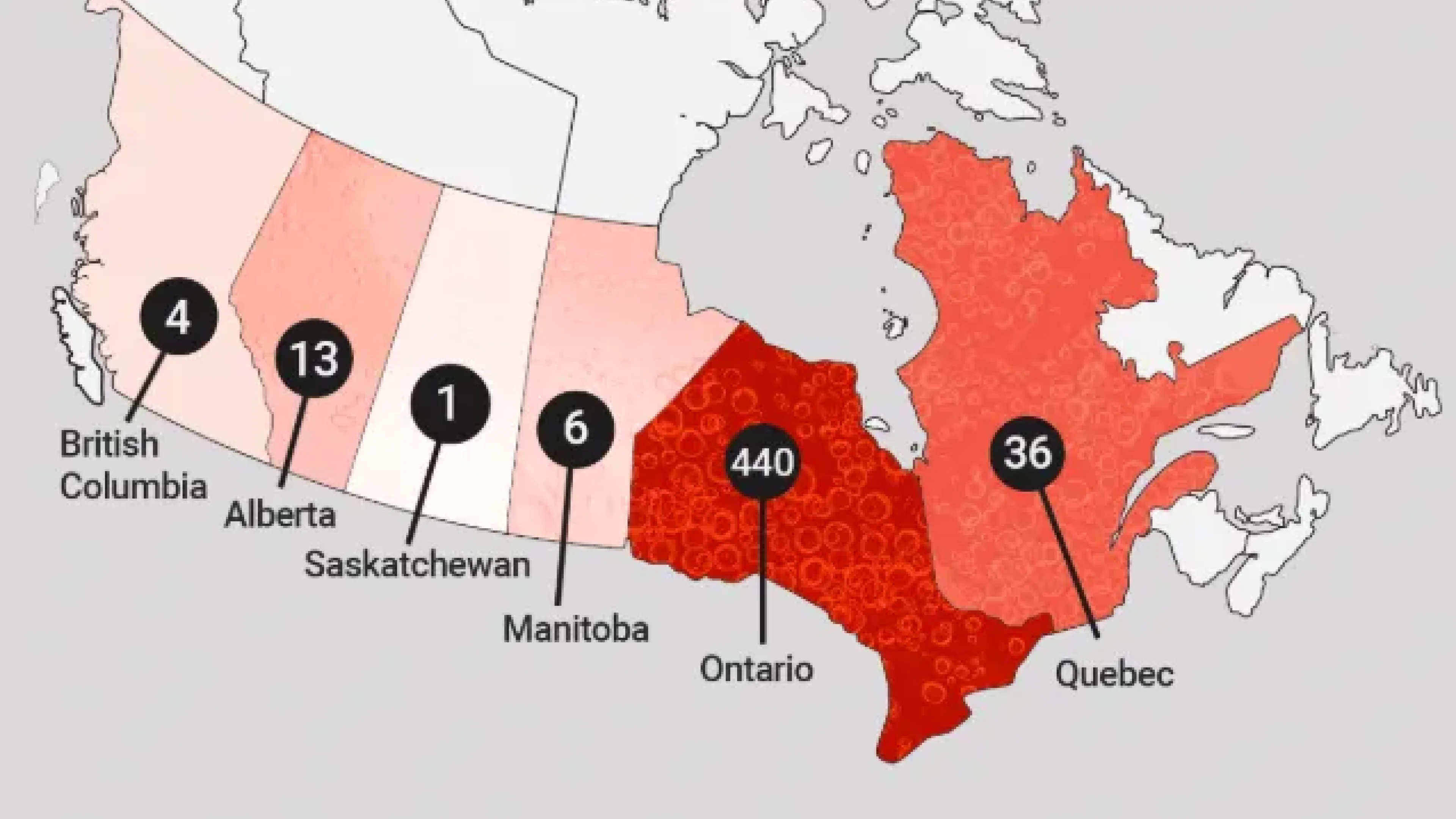You’re reading the web version of our email briefing on health policy, science and medical news. Sign up to get it next week.
Hi Healthwatchers,
We’re back, and this week’s top story isn’t about vaccines or viruses. It’s birth control.
Canadian gynecologists told the Globe that online disinformation is influencing their patients to reject established methods of contraception.
But is this just another viral fad?

Canadian OB-GYNs say it’s now common for patients to refuse birth control based on online disinformation, even when it’s been prescribed.
Why it’s important: A growing wave of anti-contraception rhetoric, amplified by Trump-aligned influencers and tech billionaires, is turning patients away from hormonal birth control. Elon Musk has a history of amplifying such content.
Musk has 14 known children with multiple partners and has often encouraged women in developed countries to have more children through his and others’ content and through the promotion of pronatalist policy. Many TikTokers and Instagrammers sowing fears of “toxicity” and infertility related to birth control are (surprise, surprise) promoting “natural” fertility tracking apps such as the Peter Thiel-backed 28. The app is part of a growing economy of alt-fertility tech aimed at women worldwide and funded by DOGE-linked billionaires. These apps can often fail even when used correctly — and don’t get me started on the privacy implications.
Read more…

Pharmacare deals are still being signed under the Carney government, with the Yukon government opting in this week.
Why it's important: Free access to contraception and diabetes meds is rolling out in parts of Canada, but large provinces are still among the holdouts. Since last fall’s passage of the Pharmacare Act, Manitoba, B.C., P.E.I., and the Yukon have signed on.
The feds have been citing a study that found for every government dollar spent on access to contraception, up to $90 is saved in downstream spending. The study is from 2010, so this may be a lowball estimate. In Manitoba, the first province to sign on, 31,931 people accessed birth control under the new program in its first four months, and clinics are seeing rising demand for IUDs. Nova Scotia’s NDP is asking why the province hasn’t opted in, and is leaving federal funds on the table.
Read more…

Measles cases in Ontario jumped from 120 to 470 in a week. (Above: measles map, March 20, 2025. – Global News)
Why it's important: This is Canada’s worst measles outbreak since before the disease was declared eliminated in 1998. Nearly 80 per cent of cases are in unvaccinated people.
Vaccine schedules are being accelerated in hotspot regions, with babies now able to get their first MMR dose at six months, and kids under four able to get their second. Dr. Kieran Moore, Ontario’s chief medical officer, issued the new guidance in a memo last week, but has otherwise been elusive. Adults born after 1970 are being urged to check if they’re immune to measles.
Read more…

Oleksandr Martsiv worked as a rural doctor in Ukraine. Now settled in B.C., he’s welding to save for his licensing exams.
Why it's important: B.C. has added over 1,000 family doctors in the past two years but 400,000 people are still without care. Meanwhile, many trained physicians remain sidelined by a costly and overly complex certification process.
Martsiv, a Ukrainian physician with 15 years of rural practice, resettled in Canada in 2022 after Russia invaded Ukraine. He now works as a welder in Abbotsford. The licensing process for international doctors can easily exceed $20,000, leaving qualified applicants priced out of practice while Canada scrambles to fill gaps in care.
Read more…

Violence against health workers in Canada has escalated dramatically — with stabbings, shootings, and daily abuse now routine in hospitals across the country, often with little institutional follow-up.
It’s important: Wait times, staffing shortages, and hallway medicine are turning ERs into pressure cookers. Violence is often a downstream consequence of failures in healthcare access and equity. It’s a systems issue.
There’s no centralized national system tracking violence in healthcare settings. Many incidents go unreported, and legal accountability is rare despite 2021 Criminal Code amendments making intimidation of healthcare workers a specific offense. Some hospitals outsource security to private firms with no expectation of physical intervention in a violent scenario. Canada does not have minimum national safety standards for protecting hospital staff from violence.
Read more…

Trump’s trade war and dismantling of federal research is shaking up life sciences. Canada could benefit.
Why it matters: Canadian health innovators have long struggled to scale their businesses at home, facing fragmented procurement systems, fraught reimbursement pathways and a resulting aversion to buying homegrown tech.
U.S. instability has generated massive political will to bolster our domestic procurement and support made-in-Canada solutions. Last week the Carney government allocated $100M to two B.C. companies to build clean fuel facilities and boost domestic manufacturing capacity for vaccines, drugs and diagnostics. With the Trump regime cutting billions in NIH research funds, some also urge a recruitment push for top U.S. scientists, arguing Canada should seize this moment, and the talent.
Read more…
That’s it for this round.
I’ve been away wrapping up my journalism fellowship (which was great). It was a chance to zoom out and really think deeply about the work ahead.
Now I’m back, and grateful as ever to be part of this conversation.
If you're heading to the CMA Health Summit in Ottawa this week, I’ll be around — feel free to flag me down, or drop me a line in advance if you’d like to put a face to the name in your inbox.
Otherwise, see you in a week, 🫡
Nick Tsergas, Editor
Canada Healthwatch
[email protected] | canadahealthwatch.ca
Stay informed.
On the most important developments in Canadian health.
Get Canada’s essential briefing on health policy, science, and system change. Get Briefing